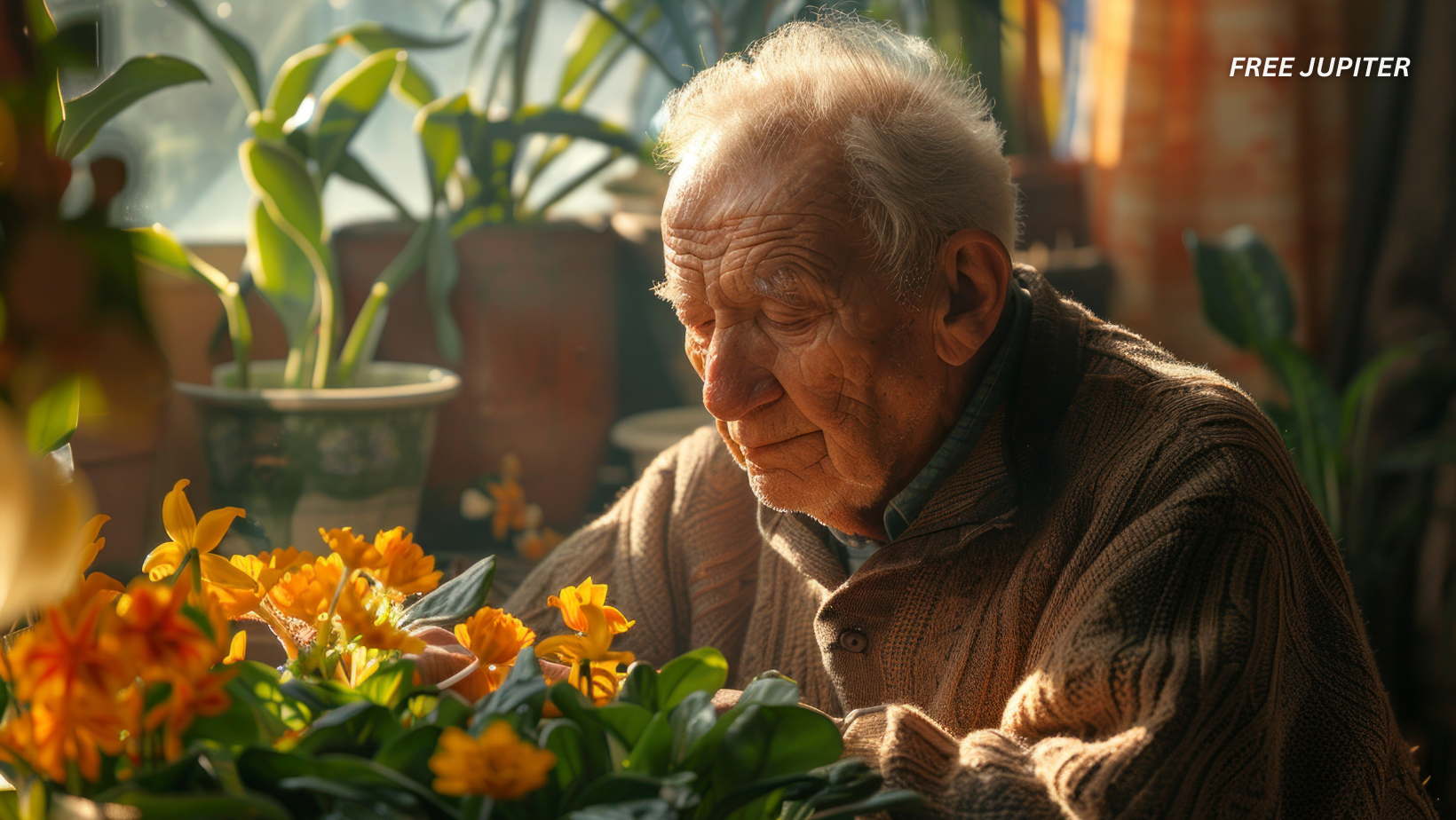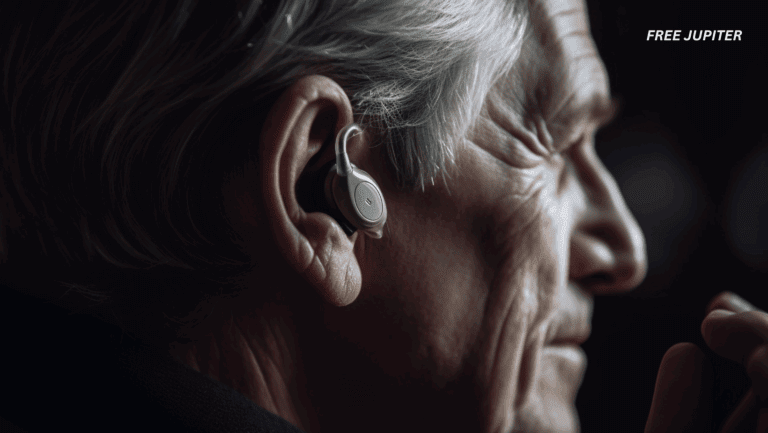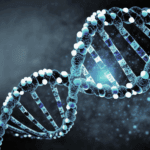Let’s address the oddly familiar scent that lingers around our beloved elders. You know the one—musty, slightly sour, not necessarily unpleasant, but definitely distinct. It’s been nicknamed the “old people smell” by pop culture and whispered in jest. But science has proven it’s not just in our heads. And surprisingly, a few servings of mushrooms each week may be the simple, earthy solution.
Welcome to the fascinating intersection of biology, aging, and food, where mushrooms might just be your skin’s best-kept secret.
The Scent of Aging: More Chemistry Than Cleanliness
It’s easy to assume that body odor is caused by poor hygiene. But in the case of “old people smell,” that assumption couldn’t be more wrong. People can bathe daily, use high-end lotions, or spritz on expensive perfume—and yet the scent persists. Why?
Because the cause comes from deep within.
The culprit is a compound called 2-nonenal—an unsaturated aldehyde that forms on human skin as we age. Discovered in a 2010 Japanese study, this chemical only begins to show up in people over the age of 40, regardless of gender or grooming habits.
This compound isn’t some mysterious toxin from the outside world. It’s actually a byproduct of your own biology. As you grow older, your skin undergoes subtle but meaningful changes. Here’s what happens:
- The natural oils in your skin (sebum) contain fatty acids, especially omega-7.
- As we age, we produce fewer antioxidants—our internal “rust protectors.”
- Without those antioxidants, the omega-7 fats begin to oxidize.
- Oxidation creates 2-nonenal, which has a greasy, slightly metallic smell.
- Slower skin cell turnover in older adults causes these oxidized oils to hang around longer, intensifying the odor.
Think of it as your skin “aging like metal left in the rain.” It’s not dirty—it’s just… oxidized.
Why You Can’t Just Wash It Away
The tricky thing about 2-nonenal is that it doesn’t sit on the surface like everyday sweat or dirt. It sinks deep into the skin and even into fabrics like clothing, bedding, and towels. Once it’s there, it’s stubborn.
Scrubbing harder won’t reach it. Stronger soap doesn’t break it down. And that cologne you sprayed on top? It’s just perfume-scented rust at that point.
“Most people don’t realize that body odor in older adults comes from inside the body,” explains Leslie Kenny, a longevity expert and founder of Oxford Healthspan. “You can’t exfoliate your way out of this.”
Read more: Engineers Create A Self-Healing Robotic Skin That Repairs On Its Own Without Human Help
Mushrooms: The Funk-Fighting Fungi
But here’s the juicy part: Kenny believes we can tackle this age-related smell from within. And her secret weapon? Mushrooms. Yes, the same mushrooms you slice into stir-fries or toss into a salad could be working behind the scenes to keep your scent fresh.
Why mushrooms? Because they contain two compounds with unique age-defying powers:
1. Ergothioneine – The Rare Antioxidant
Ergothioneine is a naturally occurring amino acid with powerful antioxidant properties. It helps protect the skin’s lipids from the oxidation that causes 2-nonenal.
But here’s the catch—humans can’t produce ergothioneine on their own. We must get it from food, and mushrooms are by far the richest source. Among the best:
- Shiitake mushrooms
- Oyster mushrooms
- Champignon mushrooms (a fancy word for your standard white button mushroom)
2. Spermidine – The Cell Cleaner
Spermidine is another fascinating compound found in mushrooms. It helps trigger autophagy, which is the body’s natural recycling system. Autophagy clears out damaged or aging cells and replaces them with newer, healthier ones.
As we get older, this process slows down. But eating foods rich in spermidine can jumpstart the system again, allowing skin cells to turn over more quickly—and that means less buildup of the oxidized fats that lead to the dreaded smell.
Kenny notes that other plant-based foods like soy, peas, and legumes also contain spermidine, but mushrooms offer a convenient, multi-benefit option.
Read more: Experts Say People Born On These Dates Are Naturally Lucky
Real Science, Real Results
This isn’t just some health influencer theory with no backing. Clinical research supports the idea.
One trial, published in the Journal of Traditional and Complementary Medicine, studied 80 adults aged 50 to 79. Participants were divided into groups and given different doses of champignon mushroom extract—ranging from 0 to 1,000 mg per day—for four weeks.
- Participants taking higher doses showed significant improvement in bad breath, body odor, and even the smell of their pillowcases.
- The results were dose-dependent, meaning the more extract they took, the better the improvement.
- And most importantly—no side effects were reported.
Beyond body odor, the extract also reduced compounds like ammonia and methyl mercaptan, both of which are gut-related and notorious for causing bad smells.
Lab tests showed that the mushroom extract actually helped neutralize these sulfur-based odors, breaking them down into odorless components.
The Aroma Chemistry of Mushrooms Themselves
Interestingly, scientists in Finland studying wild Nordic mushrooms found that these fungi produce some of the same scent-related compounds found in humans—(E)-2-nonenal, for instance.
This suggests that mushrooms might “understand,” at a chemical level, how to regulate scent production. Many mushrooms contain compounds that inhibit or balance the processes that lead to smelly byproducts.
It’s like nature’s own feedback loop: mushrooms contain the very solutions to a scent problem they share with aging skin.
How to Add Mushrooms to Your Diet
According to Kenny, you don’t need to rely on supplements to get the benefits. Just make mushrooms a regular part of your meals. Aim for:
- 3 to 4 servings per week
- Cook them in ways that preserve nutrients (e.g., lightly sautéed, baked, or added to soups)
- Mix up the varieties to get a spectrum of benefits
Kenny says she skips the supplements altogether. “I eat mushrooms all the time—in omelets, Japanese chawanmushi, stir-fries, and stews. They’re easy to love once you get creative with them.”
Mushrooms: A Superfood Beyond the Smell
While battling age-related body odor might sound like a cosmetic concern, the benefits of mushrooms go far beyond scent control. Multiple studies have linked regular mushroom consumption with:
- Lowered risk of cognitive decline
- Improved insulin sensitivity
- Reduced inflammation and blood pressure
- Possible cancer-fighting effects
- Better bone density
They’re low-calorie, nutrient-dense, and packed with antioxidants that most people’s diets are lacking.
Read more: How to Spot Fake Kindness: Subtle Clues Someone Lacks True Empathy
Final Thoughts: Don’t Mask It—Mushroom It
Let’s face it: our bodies change as we age. But that doesn’t mean we’re helpless against the quirks that come with time. “Old people smell” is more than a joke—it’s a real biological process. Fortunately, it’s one we can potentially influence with the right diet.
Rather than masking the issue with cologne or doubling down on body wash, Kenny suggests nourishing your skin from within—with mushrooms.
So, if you’re over 40 and starting to notice a subtle shift in your scent—or if you just want to be proactive—consider this your gentle, quirky nudge: Add more mushrooms to your plate.
Because aging may be inevitable, but smelling earthy in the wrong way doesn’t have to be.










